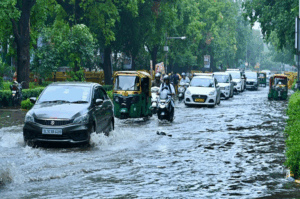Asia Prepares for Potential Mpox Surge Following Alarming Discovery


New Delhi: Asian nations are heightening their vigilance in response to the spread of a new, more dangerous strain of monkeypox (Mpox) after the World Health Organization (WHO) declared a global health emergency. The strain, labeled 1B, has caused over 500 deaths, primarily among children in the Democratic Republic of Congo, and its recent detection in Sweden has sparked concerns across Asia.
Governments in the region, from China to Pakistan, are taking proactive steps to prevent the virus from spreading within their borders. Travelers arriving from affected areas are being asked to self-report any symptoms of Mpox, while hospitals are on high alert to identify and manage cases promptly. Unlike the Mpox virus that gained global attention in 2022, the 1B strain is more lethal, with a fatality rate exceeding 3%. The virus can also be transmitted several days before symptoms become apparent, making it more challenging to control through conventional isolation and contact tracing methods.
China has implemented stringent measures at entry points, requiring travelers from affected regions to disclose any contact with Mpox patients or symptoms of the virus. These individuals may undergo testing upon arrival. In India, authorities have increased surveillance at airports and seaports, designating specific hospitals and labs to handle suspected Mpox cases. Other nations, such as Indonesia and Malaysia, have also introduced similar precautions to safeguard their populations.
These concerted efforts across Asia demonstrate the region’s commitment to preventing the spread of the dangerous Mpox strain and protecting public health.








